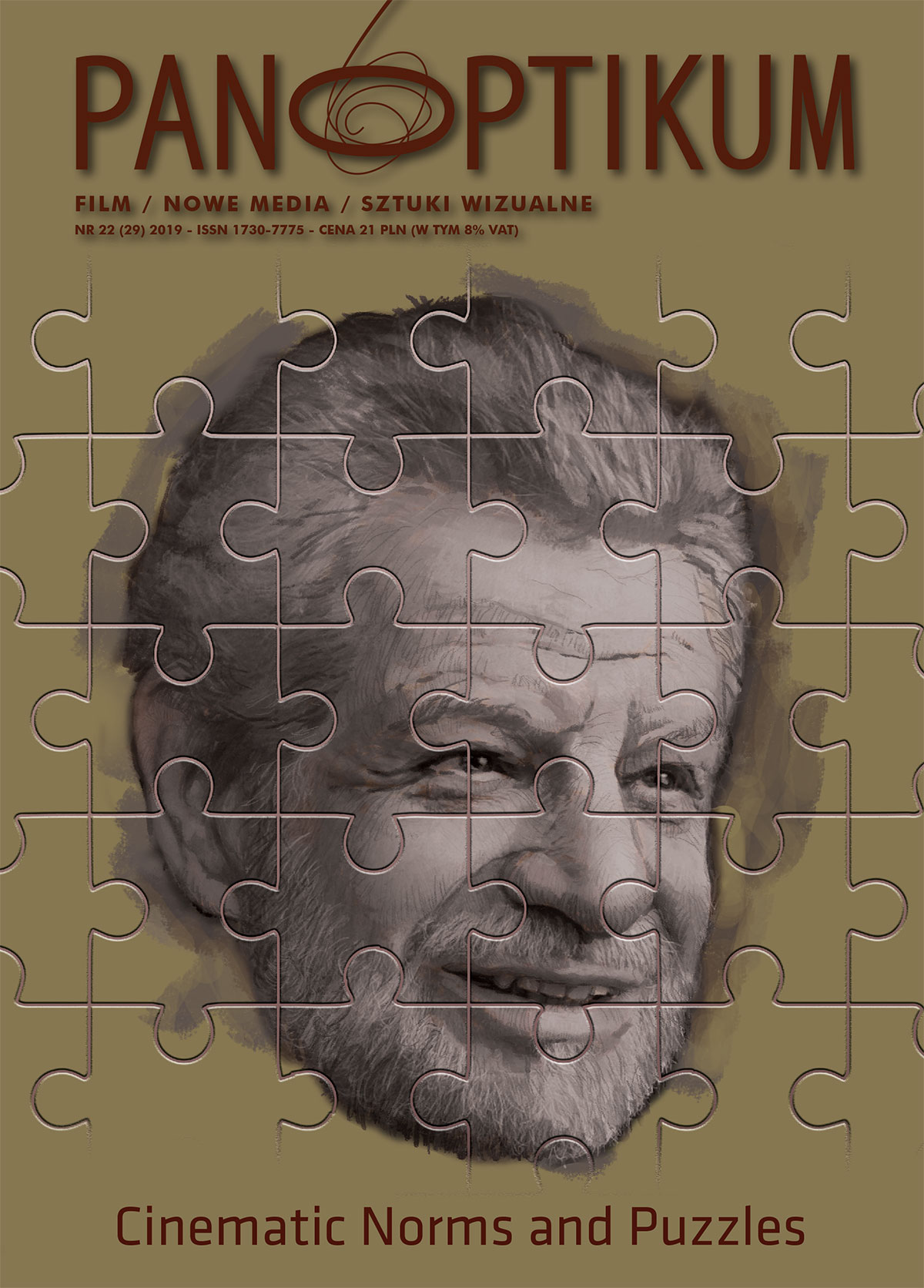Puzzle Plots in TV Serials: The Challenges for Enigma-Driven Storytelling in Long-Running Formats
DOI:
https://doi.org/10.26881/pan.2019.22.05Słowa kluczowe:
puzzle plot, narrative complexity, TV serial, dramatic questions, cognitive effort, disorientation, multiple enigmas, false lead, final twistAbstrakt
The article conducts a comparative analysis of a feature film (Open your Eyes) and two TV serials (Westworld and Dark) in order to find out how well the narrative complexity characteristic of puzzle plots may work in long-running formats. Given the core constituents of the puzzle effect ‒ disorientation, confusion, and lack of knowledge ‒ the biggest challenge for its viability in a TV serial is the extra-long running time. Both Westworld and Dark prevent audience frustration by already providing partial resolutions before the season ends, and by establishing supplementary attractions of a more classical and easy-to-grasp nature, such as future-oriented suspense-questions, or entertaining intrigues and machinations involving the whole cast of protagonists. Even in the larger structure of the TV serial, puzzle elements may, then, play an important role. However, spectators’ capacities to unravel convoluted plotlines have their limits, and the final revelation of what really happened may only satisfy if the entanglements are not overly construed. Due to these high demands, puzzle plots in TV serials will likely remain a niche phenomenon.
Downloads
Bibliografia
Brütsch, M. (2018). Complex Narration in Film: Reflections on the Interplay of Deception, Distancing and Empuzzlement, in: S. Schlickers, Vol. Toro, (eds.). Perturbatory Narration in Film: Narratological Studies on Deception, Paradox and Empuzzlement. Berlin: Walter de Gruyter.
Buckland, W. (2009). Introduction: Puzzle Plots, in: W. Buckland, (ed.) Puzzle Films: Complex Storytelling in Contemporary Cinema, Malden: Wiley-Blackwell.
Buckland, W. (2014). Introduction, in: W. Buckland, (ed.) Hollywood Puzzle Films. New York: Routledge.
Carroll, N. (1990). The Philosophy of Horror, or, Paradoxes of the Heart. New York: Routledge.
Kiss, M. (2013). Navigation in Complex Films, in: J. Eckel (eds. et.al) (Dis)orienting Media and Narrative Mazes. Bielefeld: Transcript.
Kiss, M., Willemsen, S. (2018 [2017]). Impossible Puzzle Films: A Cognitive Approach to Contemporary Complex Cinema. Edinburgh: Edinburgh University Press.
Klecker, C. (2013). Mind-Tricking Narratives: Between Classical and Art-Cinema Narration. “Poetics Today”, Vol. 34, No. 1–2.
Mittell, J. (2015). Complex TV: The Poetics of Contemporary Television Storytelling. New York: New York University Press.
Wittmer, C. (2018). Westworld’s Ratings Fell During its Messy Season 2, and it Shows Viewers are Frustrated. Available at: https://www.businessinsider.com/westworld- declined-in-ratings-during-its-messy-season-2-analysis-2018-6?r=US&IR=T [accessed December 3, 2019].

 Uniwersyteckie Czasopisma Naukowe
Uniwersyteckie Czasopisma Naukowe









